FM: Solving refugee issue will help reconciliation
Foreign Minister Vuk Jeremić says resolving the issue of refugees and IDPs will help advance the process of regional reconciliation and put an end to enmity.
Tuesday, 24.04.2012.
12:44

Foreign Minister Vuk Jeremic says resolving the issue of refugees and IDPs will help advance the process of regional reconciliation and put an end to enmity. At the opening of the International Donors Conference on Durable Solutions for Refugees and Internally Displaced Persons in Sarajevo on Tuesday, the Serbian minister noted that over 600,000 refugees reside in Serbia and over sixty percent of these belong to the most at-risk category. FM: Solving refugee issue will help reconciliation According to the UNHCR, Serbia was ranked amongst the top five states in the world with a protracted refugee situation. "Within the Joint Regional Program, for instance, our working groups will need to establish a common standard in the field of data exchange," Jeremic said, adding that "doing so should pave the way for a resolution to outstanding property and pensions issues, in turn contributing to the alleviation of the sentiments of distrust amongst affected communities." Jeremic said this would require the casting aside of antiquated ways of thinking about each other as rivals or adversaries, as well as futile attempts to apportion blame that inevitably lead to bitter self-perpetuating divisions, with their accompanying calls for vengeance. "I am convinced that we can find the courage needed to reach out to each other, so the wounds can heal and the region prospers in peace and security," he said. According to Jeremic, "all those who fled their homes deserve to have their dignity returned to them." "That is the ultimate goal, and we should not lose sight of it: to bring an end to enmity in the Western Balkans," said the Serbian foreign minister. He expressed belief the Donors Conference would help alleviate the plight of around 74,000 men, women and children living in some 27,000 households. The Sarajevo conference represents the start of a new phase, because having secured financing for the housing needs of the most vulnerable refugees, the region can now focus on other, equally important issues, he said. An international donors' conference taking place in Sarajevo on Tuesday is expected to bring in EUR 584 million to provide homes to 27,000 refugee families - a total of 74,000 people - in Serbia, Bosnia-Herzegovina, Croatia and Montenegro. Serbia should receive EUR 335.2 million, Croatia 119.7 million, Bosnia 101 million and Montenegro 27.7 million from the donation fund. The four countries will be pledging EUR 83 million to the fund themselves - Serbia's share is EUR 33 million. Vuk Jeremic (Tanjug, file) Donors urged to assist durable solution Foreign Ministers of Serbia, Bosnia-Herzegovina, Montenegro, Croatia underlined in Sarajevo on Tuesday that the region is committed to finding a durable solution for the issue of refugees, and called on foreign donors to assist in the process. The ministers said this at the opening of the international donors' conference for refugees in Sarajevo which is bringing together senior officials of the United Nations, Organization for Security and Cooperation (OSCE), European Union and the United States. The conference was opened by Chairman of the Bosnian Council of Ministers Vjekoslav Bevanda. "I hope that the conference will mark the beginning of the end of the process of finding a final solution for the refugees and contribute to the improvement of overall relations in the region,“ said Bosnian Foreign Minister Zlatko Lagumdzija. Underlining that it was "hard to talk about justice for refugees", Lagumdzija thanked the donors, adding that he expects strong and concrete support for the realization of the plan in the next five years. Croatian Foreign Minister Vesna Pusic said that one of the three reasons, because of which this meeting is so important, is that “the region has decided to take this tough and complex issue into its own hands, and to resolve it through agreement.“ “Secondly, it will help us raise funds in various ways which is the key to giving us a sense that we have made a step forward, and secured a more or less clear situation in the country. Finally, it will open up opportunities for new relations and a new status of the regional countries in the future,“ Pusic said. Montenegrin Foreign Minister Milan Rocen said that the conference is “an integral part of reconciliation and new relations in the region.“ Closing the chapter about refugees will represent the motivation for better relations of the four countries, future EU member states,“ he stressed. Participants include former UN commissioner for refugees Sadako Ogata, current UN High Commissioner for Refugees Antonio Guterres, OSCE Secretary General Lamberto Zannier, EU Deputy Director General for Enlargement Joost Korte, and Acting Assistant Secretary with the U.S. Bureau of Population, Refugees, and Migration David Robinson, while European Enlargement Commissioner Stefan Fule is expected to arrive later in the day. Tanjug
FM: Solving refugee issue will help reconciliation
According to the UNHCR, Serbia was ranked amongst the top five states in the world with a protracted refugee situation."Within the Joint Regional Program, for instance, our working groups will need to establish a common standard in the field of data exchange," Jeremić said, adding that "doing so should pave the way for a resolution to outstanding property and pensions issues, in turn contributing to the alleviation of the sentiments of distrust amongst affected communities."
Jeremić said this would require the casting aside of antiquated ways of thinking about each other as rivals or adversaries, as well as futile attempts to apportion blame that inevitably lead to bitter self-perpetuating divisions, with their accompanying calls for vengeance.
"I am convinced that we can find the courage needed to reach out to each other, so the wounds can heal and the region prospers in peace and security," he said.
According to Jeremić, "all those who fled their homes deserve to have their dignity returned to them."
"That is the ultimate goal, and we should not lose sight of it: to bring an end to enmity in the Western Balkans," said the Serbian foreign minister.
He expressed belief the Donors Conference would help alleviate the plight of around 74,000 men, women and children living in some 27,000 households.
The Sarajevo conference represents the start of a new phase, because having secured financing for the housing needs of the most vulnerable refugees, the region can now focus on other, equally important issues, he said.
An international donors' conference taking place in Sarajevo on Tuesday is expected to bring in EUR 584 million to provide homes to 27,000 refugee families - a total of 74,000 people - in Serbia, Bosnia-Herzegovina, Croatia and Montenegro.
Serbia should receive EUR 335.2 million, Croatia 119.7 million, Bosnia 101 million and Montenegro 27.7 million from the donation fund.
The four countries will be pledging EUR 83 million to the fund themselves - Serbia's share is EUR 33 million.
Donors urged to assist durable solution
Foreign Ministers of Serbia, Bosnia-Herzegovina, Montenegro, Croatia underlined in Sarajevo on Tuesday that the region is committed to finding a durable solution for the issue of refugees, and called on foreign donors to assist in the process.The ministers said this at the opening of the international donors' conference for refugees in Sarajevo which is bringing together senior officials of the United Nations, Organization for Security and Cooperation (OSCE), European Union and the United States.
The conference was opened by Chairman of the Bosnian Council of Ministers Vjekoslav Bevanda.
"I hope that the conference will mark the beginning of the end of the process of finding a final solution for the refugees and contribute to the improvement of overall relations in the region,“ said Bosnian Foreign Minister Zlatko Lagumdžija.
Underlining that it was "hard to talk about justice for refugees", Lagumdžija thanked the donors, adding that he expects strong and concrete support for the realization of the plan in the next five years.
Croatian Foreign Minister Vesna Pusić said that one of the three reasons, because of which this meeting is so important, is that “the region has decided to take this tough and complex issue into its own hands, and to resolve it through agreement.“
“Secondly, it will help us raise funds in various ways which is the key to giving us a sense that we have made a step forward, and secured a more or less clear situation in the country. Finally, it will open up opportunities for new relations and a new status of the regional countries in the future,“ Pusic said.
Montenegrin Foreign Minister Milan Roćen said that the conference is “an integral part of reconciliation and new relations in the region.“ Closing the chapter about refugees will represent the motivation for better relations of the four countries, future EU member states,“ he stressed.
Participants include former UN commissioner for refugees Sadako Ogata, current UN High Commissioner for Refugees Antonio Guterres, OSCE Secretary General Lamberto Zannier, EU Deputy Director General for Enlargement Joost Korte, and Acting Assistant Secretary with the U.S. Bureau of Population, Refugees, and Migration David Robinson, while European Enlargement Commissioner Stefan Fule is expected to arrive later in the day.










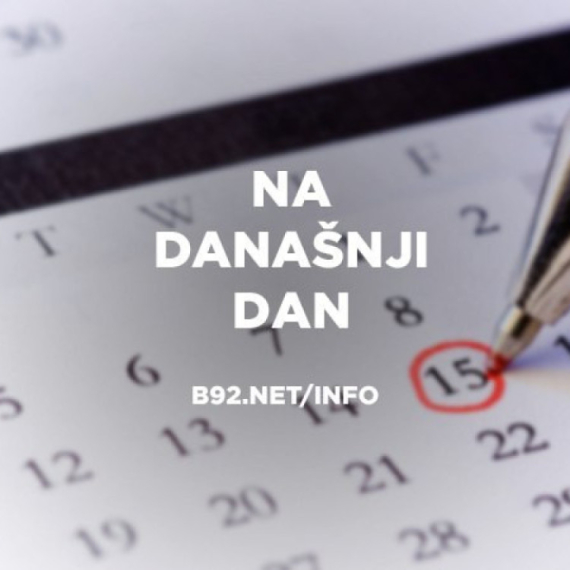
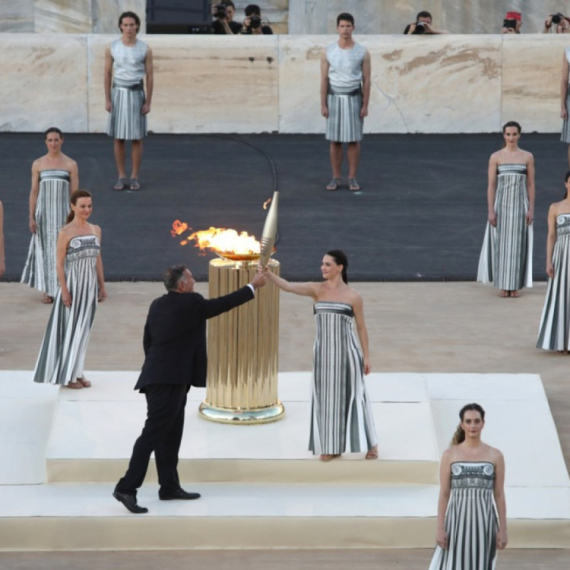
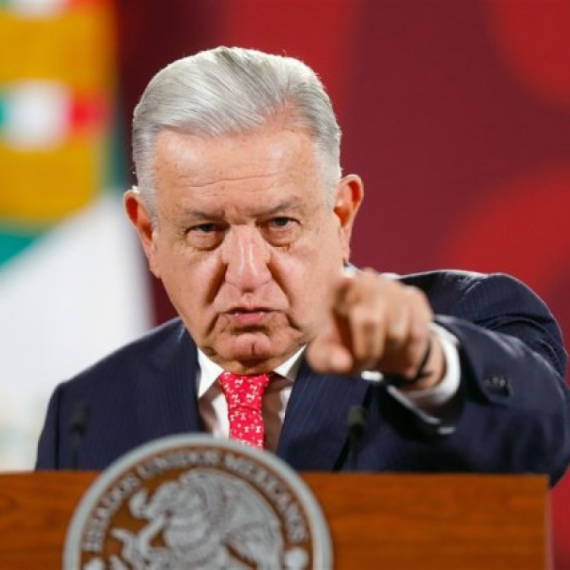



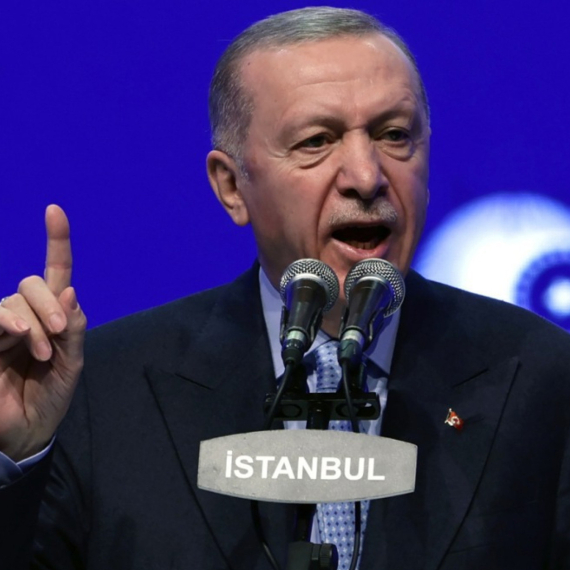




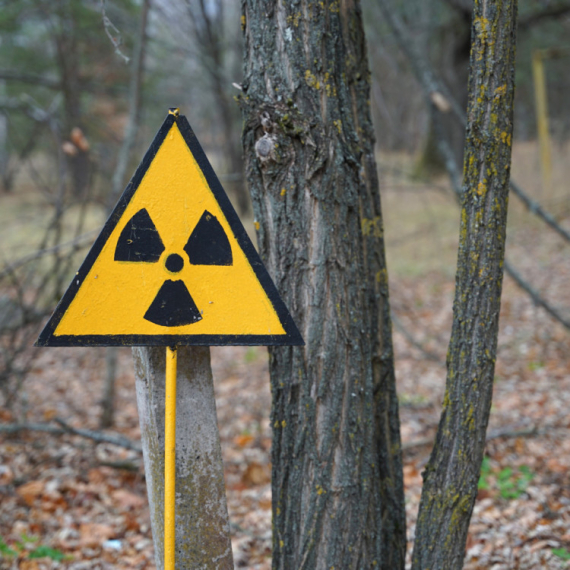


























Komentari 16
Pogledaj komentare